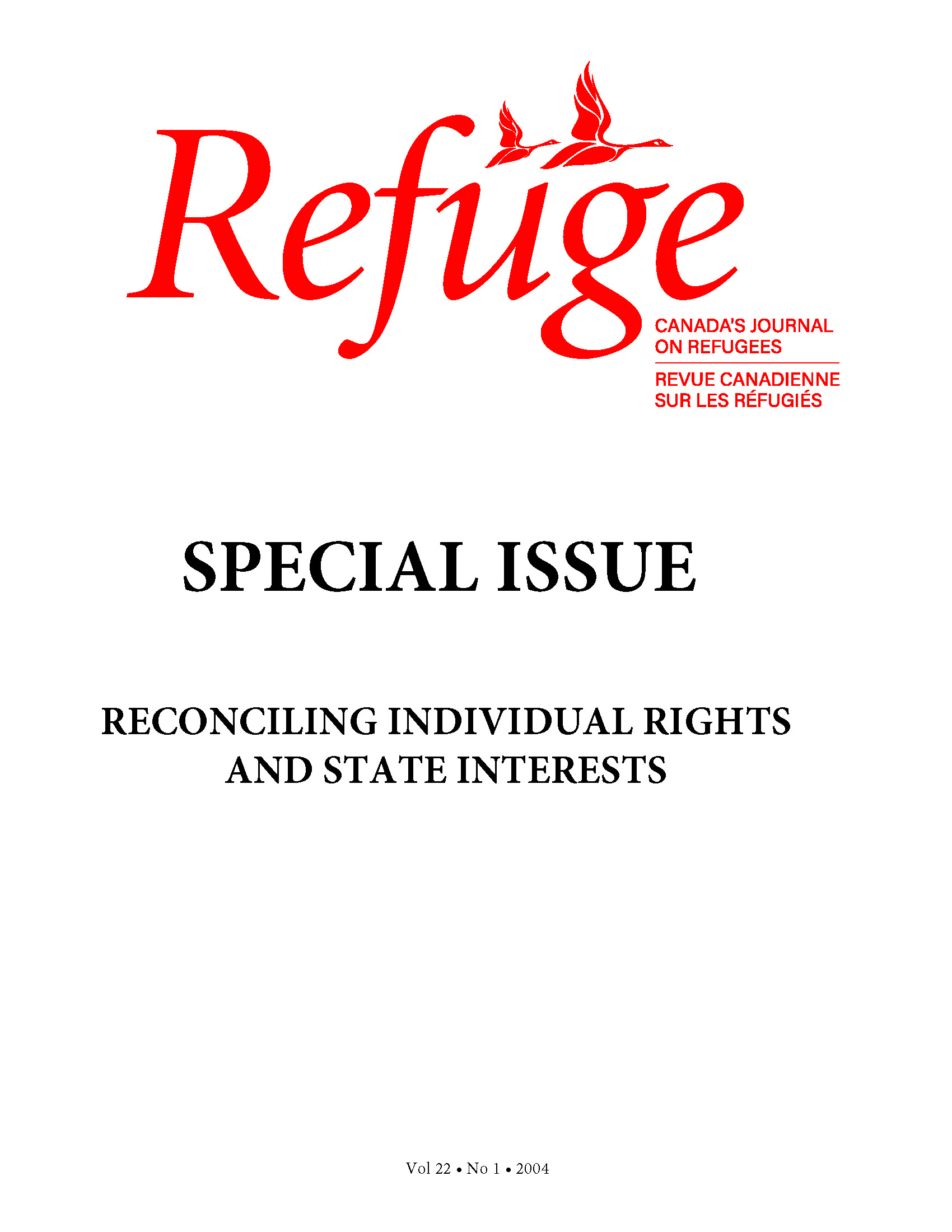The International Relations of the “New” Extraterritorial Approaches to Refugee Protection: Explaining the Policy Initiatives of the UK Government and UNHCR
DOI:
https://doi.org/10.25071/1920-7336.21318Keywords:
asylum, refugee protection, international relations, law, extraterritorial protection, United Kingdom, UK Proposals, UNHCR, Convention PlusAbstract
During 2003 there was an immense amount of debate about the possibility of states adopting extraterritorial approaches to asylum processing and refugee protection, and about such policies’ compatibility with international refugee and human rights law. The debate has centred on two central policy initiatives: the so-called “UK Proposals” and UNHCR’s “Convention Plus.” It has so far focused primarily on the practical and legal consequences of these initiatives. What has been less clear is any explanation of the UK’s (and other supportive states’) motivation in aspiring to de-territorialize refugee protection and of UNHCR’s strategy in the evolving consultations. After clarifying the conceptual and political relationship between the two sets of proposals, the article explores the motivation and international relations underlying them, from the perspectives of the UK Government and UNHCR.Metrics
Downloads
Published
How to Cite
Issue
Section
License
Copyright (c) 2004 Alexander Betts

This work is licensed under a Creative Commons Attribution-NonCommercial 4.0 International License.
Refuge authors retain the copyright over their work, and license it to the general public under the Creative Commons Attribution-Non Commercial License International (CC BY-NC 4.0). This license allows for non-commercial use, reproduction and adaption of the material in any medium or format, with proper attribution. For general information on Creative Commons licences, visit the Creative Commons site. For the CC BY-NC 4.0 license, review the human readable summary.







